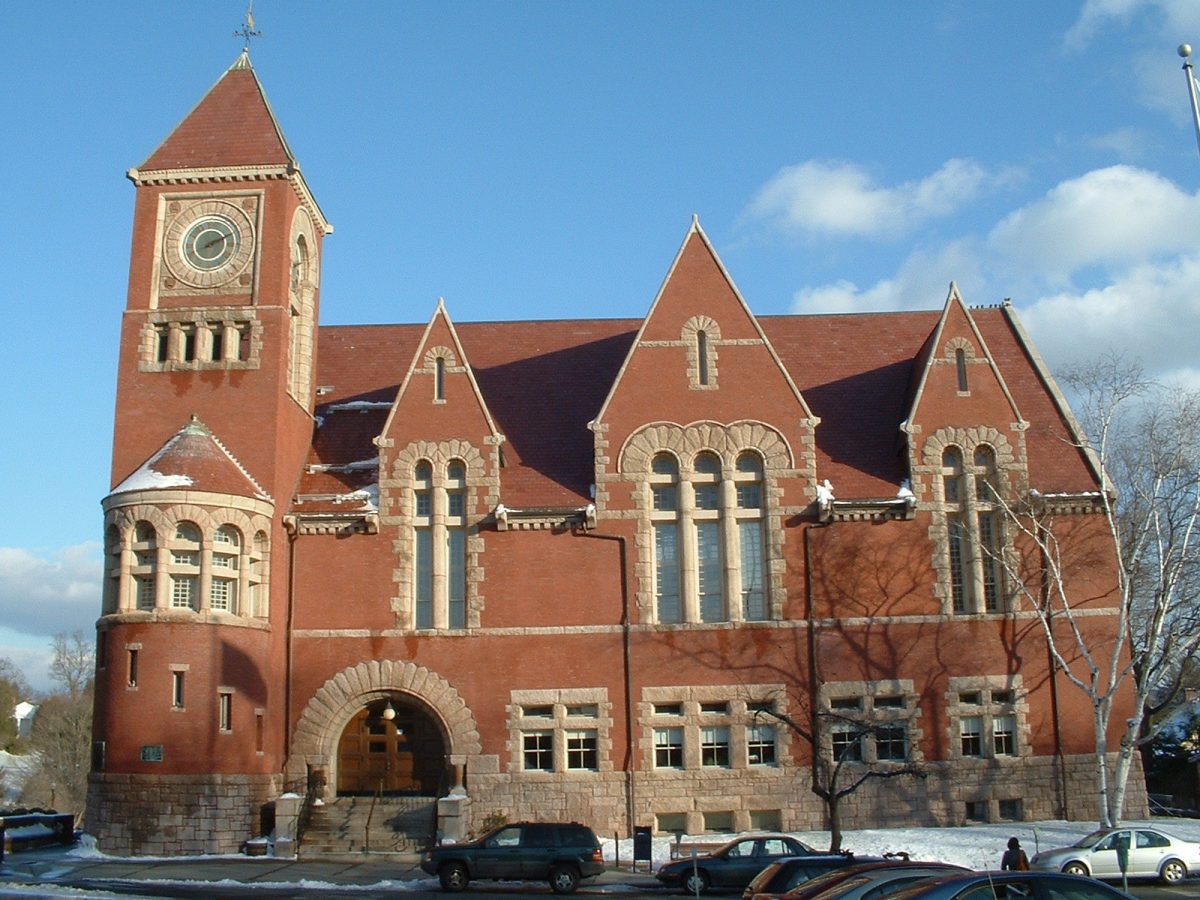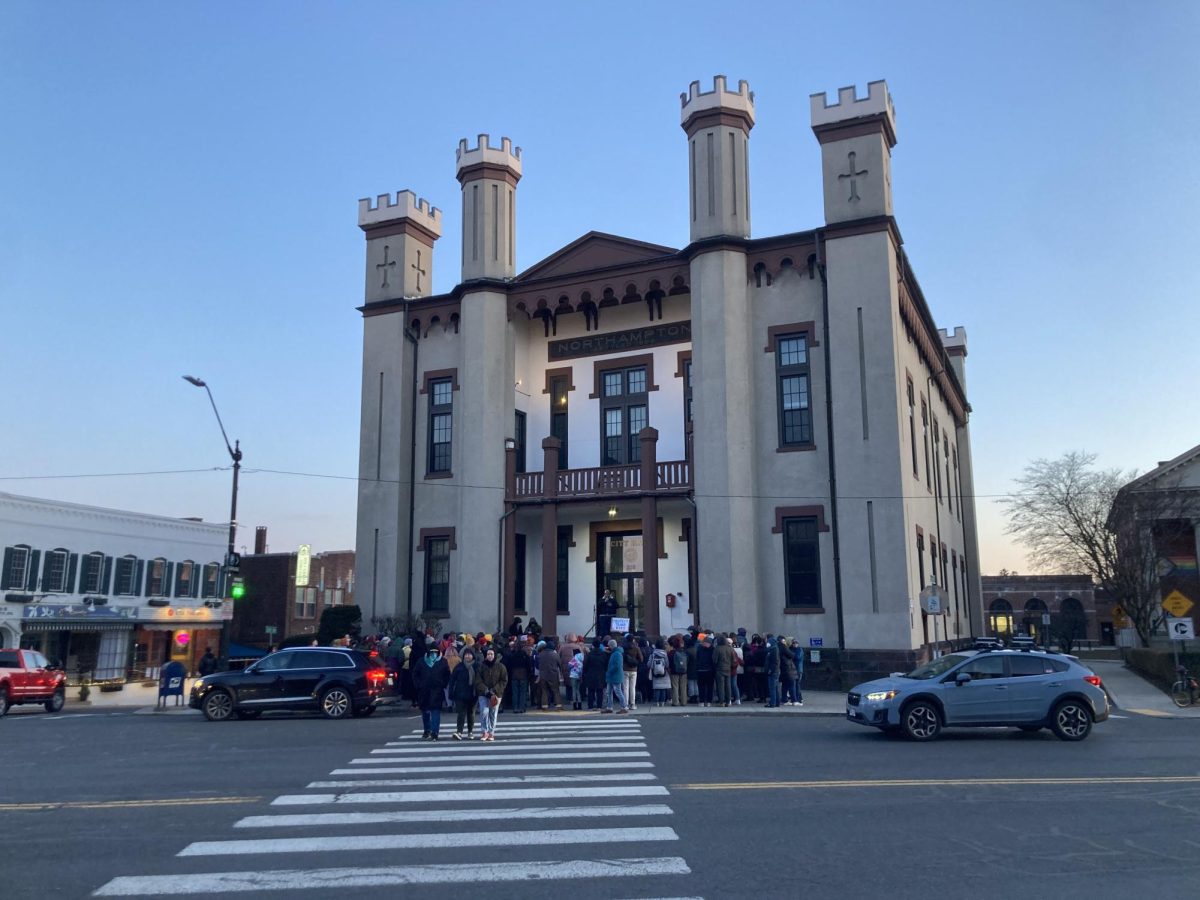For Raymond Bradley, a distinguished professor of geosciences at the University of Massachusetts, the quest to get the public to understand climate change is never ending. However, Bradley, who has faced several inquiries about his scientific abilities and ethics, has refused to change his tune.
“I speak out,” he said simply.
Currently, The American Tradition Institute, a conservative think tank that focuses on environmental issues and according to its website is funded by grassroot contributors, is trying to procure climatologist Michael Mann’s emails. Some of these emails are correspondence between Mann and Bradley, who have worked together on several high-profile projects, including a model of the climate that examined the quantifiable variable of temperature, which resulted in the “hockey stick graph,” a controversial line graph (shaped like a hockey stick) that was published in 2001 depicting an increase in global temperatures.
“What right to they have [to the emails]? And what’s their goal?” questioned Bradley. “Their goal is to sift through it and find a couple of words that can created confusion.”
Since the hockey stick controversy, the public, in the eyes of Bradley, have been confused on the issues of global warming and climate change. The controversy started when Bradley, along with Mann and climatologist Malcolm Hughes, received a letter from U.S. Rep Joe Barton (R-Texas) requesting records on every project the men had worked on.
“They immediately pounced on the people who produced the graph,” said Bradley. “They said ‘these people are frauds’ … and tried to pick on the scientists reputations, and it worked. People are no longer convinced the scientists are speaking with one voice.”
One voice which spoke out against Bradley was Barton, who combatted Bradley and the other contributors to the hockey stick graph, in 2005, which caused Bradley to write the book “Global Warming and Political Intimidation: How Politicians Cracked Down on Scientists as the World Heated Up” in 2010.
“This wasn’t the first time that people have been picked on,” said Bradley, referring to political inquiries into other climatologists work. “Basically, the strategy [of climate change deniers] if you don’t like the message of global warming is to go after the messenger and ruin their careers.”
In his book, Bradley denounces conservatives – such as Barton – with energy interests, for he views them as a problem and works to discredit their arguments. After the hockey stick graph was published, Canadian mathematician Stephen McIntyre tried to repeat the experiment, and his results were not the same and did not show any indication of climate change as Bradley discusses in his book.
In 2009, Bradley once again found himself in the middle of a political debate, when thousands of emails between climatologists were stolen and released in what became known as the “ClimateGate” scandal.
“The scandal was that the emails were stolen,” said Bradley on the affair.
Critics said, according to Bradley, that the emails revealed proof that scientists from the Climate Research Unit manipulated data to create proof of climate change. But, several independent reports have found that the emails scientist exchanged did not manipulate data. However, the incident caused public opinion on climate change to drop from 71 percent of American adults believing in global warming in 2008 to 57 percent in 2009 according to an independent report from Yale.
However, Bradley maintains that global warming is real and an important issue that needs to be dealt with by the government.
“What we have seen in the past thousand years, are slowly declining and then rapidly rising temperatures in the last 150 years,” said Bradley. “Previously, changes in the output of the sun or volcanic eruptions could explain changes in the climate, but when you get into the 20th century these variables are no longer sufficient. The only variable that could explain it is the increase in carbon.”
According to Bradley, there has not been this much carbon in the atmosphere since “humans were crawling out of Africa.” This amount of carbon is creating more energy in the atmosphere, creating stronger storm systems and changes in the climate.
“In some way, [the increase in carbon] may allow storms to be more intense.” Bradley said. “There may not be more hurricanes in is the future, but those that develop may be more intense.”
The only solution that Bradley sees to climate change is government regulation on carbon and other regulations that will protect the environment. However, based on his history with the government, Bradley said that it is unlikely that any substantial legislation will be passed soon.
“The United States is the only country in the world that is not taking climate change seriously,” said Bradley. “They [the government] think the free markets will solve all the problems … But you can look back in history and there is no history that the case. I think this is a very naïve view, and that you need to have government regulations.”
When Bradley was a freshman at University of Southampton, England, in 1965, he did not think he would be dealing with controversy that climate change created or that he would be a paleoclimatologist – a scientist who studies the whole history of the climate rather than focusing on the period of time where instruments that could measure the climate were invented.
In fact, he did not even know what paleoclimatology was at the time, and says he “never” could have predicted where his life would go. Bradley studied geography for undergraduate degree and was required to take some courses on the climate, which he ended up studying for his doctorate degree at University of Colorado, Boulder from 1971 to 1974. At first he was mostly interested in the climate of cities, but a trip to the Arctic Circle changed that.
“Then I was hooked,” said Bradley who has been teaching at the University for more that 30 years and has published or edited 10 books.
Bradley has done most of his research in the Arctic Circle, studying the mud at the bottom of ancient lakes to determine variation in climate over thousands of years.
“I’ve had some great experience in remote parts of the world,” Bradley said. “Scary things happen when you travel in airplanes in the north, because you generally set off without run away and then you try to put the plane down ‘without breaking it’ as the pilots say.”
However, in the past 10 years, Bradley has refocused his work mostly to address climate change issues, who will be one of the co-director of the new Northeast Climate Science Center on campus.
“I think it is important,” Bradley said. “It should be called global climate disruption or global climate chaos really.”
Katie Landeck can be reached at [email protected].

















